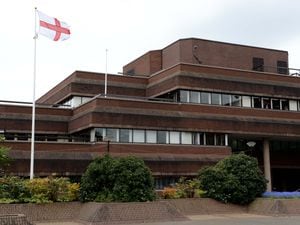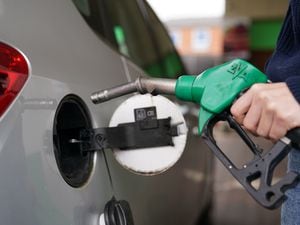Wolverhampton has almost 25,000 ‘fuel poor’ homes
Wolverhampton has almost 25,000 'fuel poor' properties, where people are struggling to heat their homes.

Housing bosses in Wolverhampton have outlined a series of actions to address poor energy performing homes in the city, in response to the growing cost of living crisis.
A meeting of the council’s residents, housing and communities scrutiny panel on Thursday night received an update on the energy efficiency of the city’s housing stock and the programmes being put in place to tackle fuel poverty.
Interim service manager for housing strategy and policy Karen Beasley said: “We’re hearing all the time about households choosing whether to eat or heat.”
According to the council’s own figures there are just under 25,000 properties - in both the social and private housing sector - in Wolverhampton classed as 'fuel poor'.
Ms Beasley said: “To support those privately-owned properties, within the city council we’ve got our private sector housing team that works to improve the quality of properties that are privately rented to tenants.
“That allows them to live in a safe and healthy environment, free from hazards and also addresses issues such as damp and mould.”
She said the council has been successful in winning £1.8 million in grant funding for a number of schemes to support those private households, and is concentrating this round of schemes on the Blakenhall ward.
“The funds that we have just been awarded will provide improvements such as loft insulation, floor and internal wall insulation and external wall insulation," she said.
She added: “Three years ago Wolverhampton declared a climate emergency. 35 per cent of the city’s carbon footprint is produced by domestic buildings through electricity and heating, so we’ve got an issue to address there.
“Our City: Our Plan supports the climate agenda in the delivery of good homes in well-connected neighbourhoods and health and inclusive communities, and that is further backed up by the Housing Strategy 2019-24, which is committed to the delivery of better homes for all which brings in new-build properties that will be built to modern day standards.”
Head of assets and stock investment at Wolverhampton Homes Simon Bamfield said the city’s council-owned housing stock is just under 22,000 , and is made up of a range of properties, from tower blocks to houses and bungalows.
He said: “The majority of those, 98 per cent, were built between 1920 and the early 1980s. A lot of the properties, particularly those built during the 1950s, 60s and 70s are very poor in terms of energy efficiency.
“We have a draft carbon reduction strategy for 2022-24, a draft asset management strategy 2022-26 and a draft fuel poverty strategy for housing which are all about to go out and will address these issues.”
Councillor Greg Brackenridge said: “I’m more than happy to support the existing programmes. I think there has been a lot of good work done here and it’s vitally important considering what’s happening in the energy market at the moment.
“West Midlands Fire Service do safe and well visits on houses which is not just about fitting smoke alarms. It’s about checking electrical sockets, checking people aren’t using two gallons of oil in their fryers to make chips.
“I would like to know if there could be some work done with the fire service when they are going out to vulnerable people’s homes. That is an innovative approach to giving energy help to the people who really need it most.”





